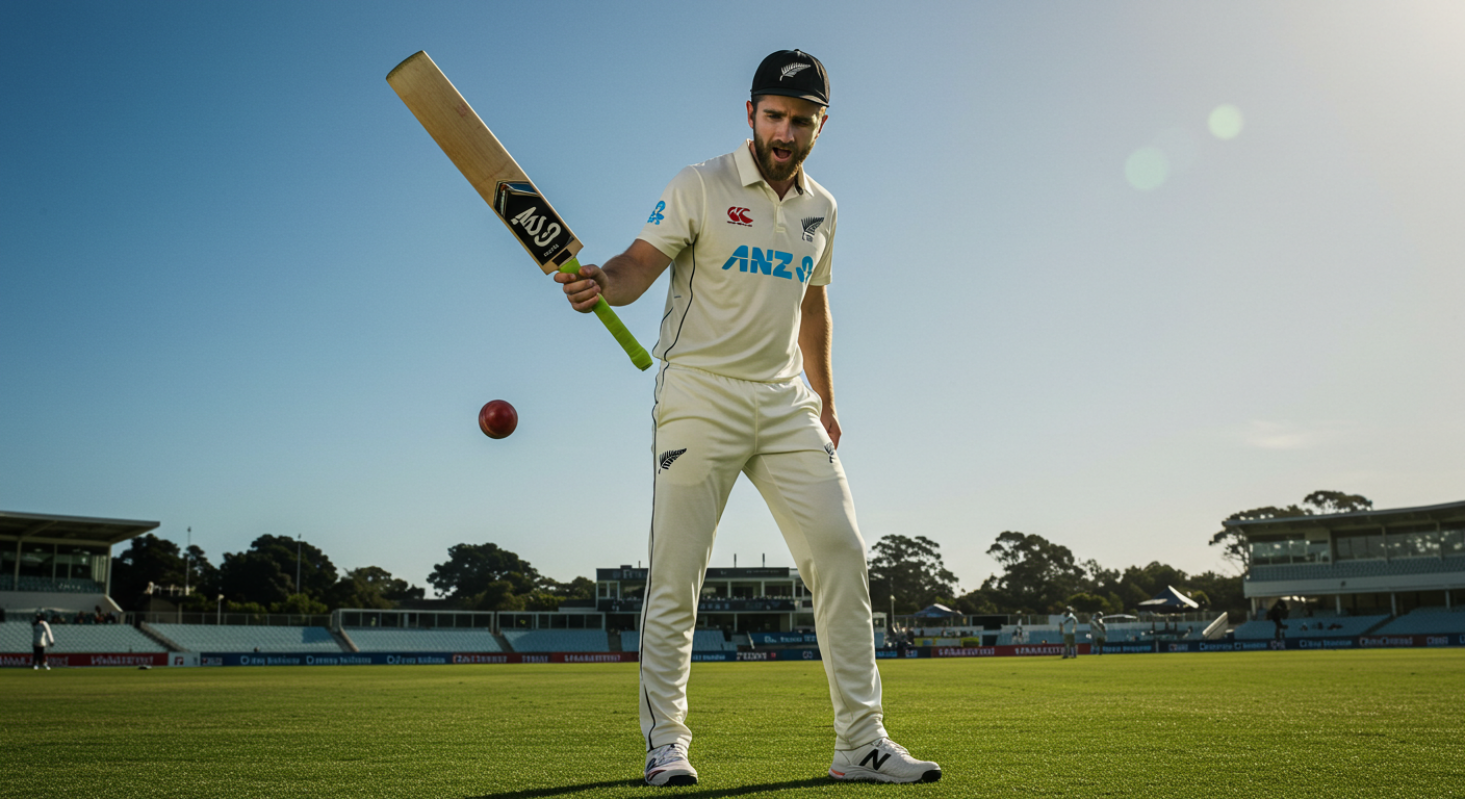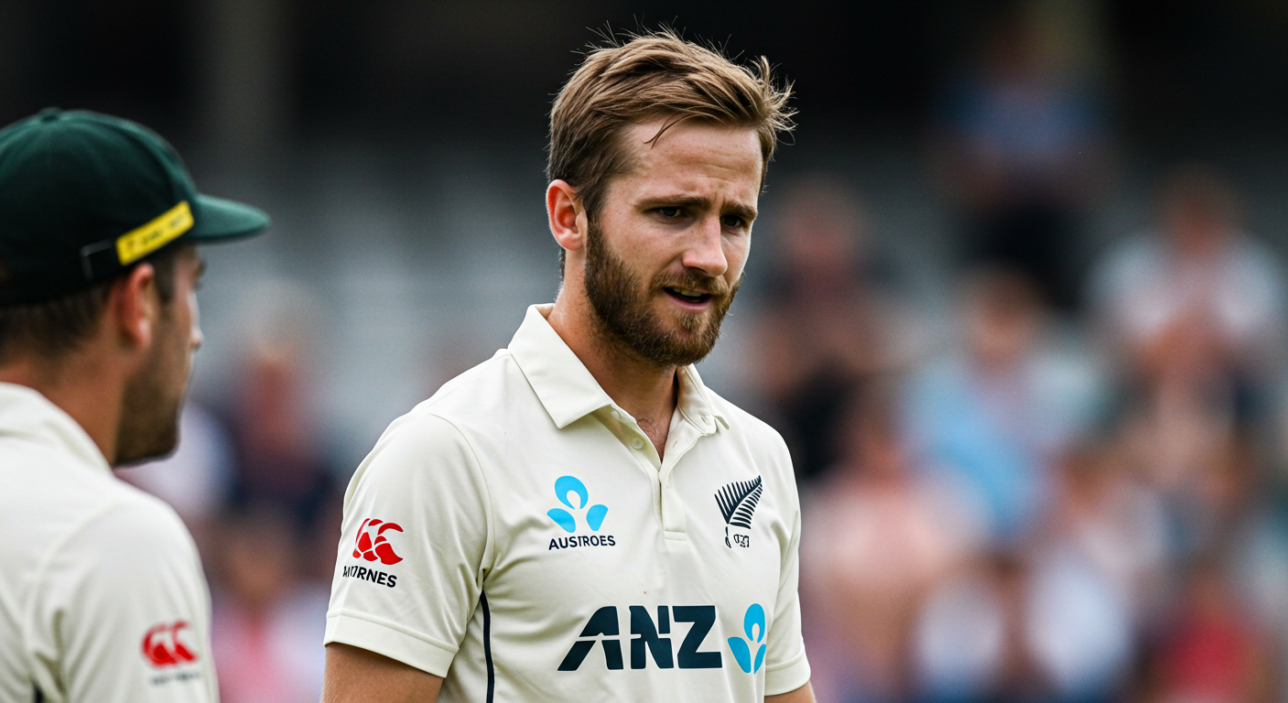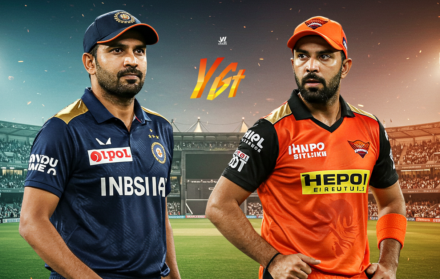
Kane Williamson: The Quiet Giant of Modern Cricket
In an era defined by flamboyant strokeplay, social media presence, and aggressive on-field personas, Kane Williamson represents something almost unfashionable—quiet, methodical excellence. His achievements have never relied on spectacle. There are no outrageous send-offs, viral press conferences, or theatrical gestures. What he offers instead is consistency, intellect, and a technical clarity that has made him one of the most respected cricketers of the modern era.
Since his debut in 2010, Williamson has built a career on substance over style. He averages over 50 in both Test and ODI cricket. He has scored runs on every major cricketing continent. He has led New Zealand to historic victories, including a World Test Championship title in 2021 and back-to-back World Cup finals. And he has done it all with an almost unflappable calm.
This article examines the factors that make Williamson such a defining figure in the current cricket landscape. It is not a story of dominance through charisma or pace. It is the story of a batter whose greatness is defined by precision, of a captain who builds belief through composure, and of a cricketer whose impact continues to grow without ever demanding the spotlight.
Technical Consistency in a Changing Game

Kane Williamson’s batting technique does not chase trends. While much of modern cricket favours power over precision and innovation over orthodoxy, Williamson remains a master of traditional strokeplay, refined through discipline rather than flair. His technique is not flashy, but it is remarkably efficient.
The core of Williamson’s success lies in his balance—both physically at the crease and mentally at the crease of pressure. He possesses a still head, soft hands, and the ability to play the ball late—traits that are particularly valuable on difficult pitches. His footwork is precise, allowing him to quickly judge length and line. Whether facing high pace or subtle spin, he appears neither rushed nor uncomfortable.
He has scored centuries in all major Test-playing nations. In England and New Zealand, he’s used the leave with patience. In India and Sri Lanka, he’s relied on wristwork and placement. In Australia, he’s countered bounce with late cuts and square drives. His adaptability is not reactive—it is rehearsed.
Beyond his strokeplay, Williamson’s greatest asset may be his understanding of match situations. He does not chase run-a-ball milestones in the middle of a collapse. He builds slowly, reads conditions, and responds accordingly. His strike rate may not reflect the tempo of T20, but his innings often anchor New Zealand through high-pressure scenarios across formats.
In a generation where players are often reduced to highlight reels, Williamson’s value is cumulative. His runs may not trend—but they win matches. His technique may seem simple—but it is built on the complex demands of international cricket.
Leadership Through Stability, Not Sound
In an era of expressive captains and aggressive field marshals, Kane Williamson’s approach to leadership is remarkably understated. Yet the impact of his tenure as New Zealand’s Test and limited-overs captain has been transformative. He has not redefined tactics, nor invented a new style of cricket—but he has cultivated a team culture rooted in composure, accountability, and quiet belief.
Williamson doesn’t dominate a match through persona. He doesn’t shout instructions or involve himself in every delivery. What he offers is a stabilising influence—on and off the field. In high-pressure situations, he exudes calm. This sets the tone for a team that has become known for its measured and unflustered approach, particularly in multi-day cricket.
Under his captaincy, New Zealand rose to No. 1 in the ICC Test rankings and won the inaugural World Test Championship final in 2021. His use of resources was pragmatic: rotating Wagner and Southee to exploit seam movement, introducing spin conservatively but effectively, and managing workload intelligently across formats. His field settings are thoughtful rather than radical, often built around subtle traps and patient execution rather than aggression or spectacle.
Players speak highly of his trust. He delegates. He rarely overmanages. And in doing so, he allows cricketers to grow into their roles without fear of failure. In many ways, Williamson’s style is anti-ego. He doesn’t compete for the spotlight. He distributes it.
He has also been an exemplary ambassador in defeat. After the heart-breaking 2019 World Cup final, his dignity in the aftermath won him admiration far beyond the cricketing world. Few leaders could absorb such an emotional blow and speak with the poise he showed. It wasn’t spin—it was sincerity.
Williamson’s captaincy is not a brand. It is not built for the cameras. It is built for results. And the numbers, and respect, speak for themselves.
Crafting a World-Class New Zealand Side

New Zealand’s rise to consistent global competitiveness in all three formats has been driven by systemic investment and structural depth—but Williamson has been the figurehead of that evolution. His tenure has coincided with one of the most successful periods in the country’s cricket history, and his influence has been felt far beyond his own statistics.
Williamson took over the Test captaincy in 2016 following Brendon McCullum’s explosive era. While McCullum revolutionised New Zealand’s style with aggression and intent, Williamson brought refinement, tactical discipline, and a higher level of consistency. He didn’t undo McCullum’s legacy; he matured it.
Under his leadership, New Zealand developed a squad that could compete anywhere. Their fast bowlers—Boult, Southee, Wagner, and Jamieson—formed one of the most versatile attacks in world cricket. Their batting order, while rarely filled with superstars, became known for reliability. Williamson, batting at No. 3 or 4, served as both foundation and finisher. His presence allowed stroke-makers like Ross Taylor, Tom Latham, and Devon Conway to play with freedom and clarity.
The 2021 World Test Championship victory over India at Southampton was a strategic and symbolic triumph. New Zealand executed a perfect game plan, rotating their bowlers smartly, exploiting English conditions, and letting Williamson’s measured 52 not out in the fourth innings guide the chase. It wasn’t spectacular—it was clinical. A hallmark of his leadership.
He has also helped guide the white-ball transition. Despite New Zealand being considered a smaller cricketing nation in terms of resources and population, they reached three ICC finals in five years (2015, 2019, 2021). Their success was not a miracle—it was the product of a group of players, led by a captain who placed process and clarity above hype.
Kane Williamson hasn’t just led a team. He’s helped build a cricketing identity—unflashy, methodical, respected, and enduring.
Performances Under Pressure
Kane Williamson’s greatness is not built on statistical accumulation alone—it’s forged in the crucible of high-pressure cricket. He is, quite simply, one of the most reliable batters in world cricket when the situation demands restraint, resolve, and intelligence. While his batting is seldom theatrical, it is often decisive.
The 2019 World Cup semi-final against India at Old Trafford is perhaps the clearest demonstration of this. Batting first on a difficult pitch, Williamson weathered a relentless Indian bowling attack to score a measured 67—an innings that didn’t light up the scoreboard but anchored New Zealand to a defendable total. In the final, his 148-run tournament tally was eclipsed by more flamboyant efforts, but he still emerged as the tournament’s best player—not because he was the loudest, but because he was the most consistent and composed.
His 200* against Bangladesh in 2021, scored over nearly 10 hours of batting, was another example of how he transforms slow matches into inevitable victories. Whether facing reverse swing, bounce, or turn, he simply doesn’t flinch. He is a player who scores based on what the game needs, not what the audience demands.
That distinction—between performative and purposeful cricket—is what separates him. He may not have the most sixes or fastest centuries, but in games where stakes are high and margins thin, Williamson’s calmness often tips the scale.
Resilience Through Injury and Adversity

Williamson’s quiet excellence has also extended to his conduct off the pitch, particularly in the face of physical setbacks. Injuries have increasingly disrupted his career, especially in the last few years—elbow tendinopathy, a torn ACL, recurring niggles—but what stands out is how he approaches recovery with the same patience that defines his batting.
Unlike players who rush returns or dramatise lay-offs, Williamson remains composed. After his ACL injury during IPL 2023, many questioned whether he’d be fit in time for the World Cup later that year. Not only did he return, but he scored runs almost immediately, slotting back into New Zealand’s XI as if he had never left. That quiet re-entry, devoid of media fanfare, is typical of his approach: let performance speak louder than progress updates.
Beyond physical resilience, his mental fortitude is equally notable. Few players have had to absorb the psychological weight of a World Cup final loss decided not by play but by boundary count. Yet in 2019, when New Zealand fell agonisingly short, Williamson’s response was dignified. He congratulated England, deflected attention away from controversy, and handled the press with grace. That maturity is rare, especially in the wake of disappointment.
His ability to navigate both physical and emotional adversity has only enhanced his standing. Younger players within the New Zealand system now cite him as the model of professionalism—not just for how he trains, but for how he conducts himself in setbacks. His presence sets the tone, even when he’s not on the field.
Injury may have reduced the number of matches he plays, but it has not diminished his impact. If anything, it has underlined how valuable his presence truly is.
A Legacy of Respect and Influence
Kane Williamson’s legacy will not be defined by viral moments, record-breaking sponsorship deals, or crowd-thumping centuries. Instead, it will be remembered as one of quiet influence—built on technical mastery, leadership without ego, and integrity that transcended formats.
He is, in many ways, the cricketer’s cricketer. Analysts admire his balance. Coaches trust his temperament. Teammates echo his steadiness. And opponents, regardless of rivalry, speak of him with near-universal respect. There is no scandal attached to his name. No long list of disciplinary warnings or tabloid headlines. His reputation has been shaped entirely by what he brings to the field: excellence and accountability.
This influence extends beyond the New Zealand dressing room. Globally, he has inspired a different kind of cricketing role model. In a sport increasingly caught between entertainment and excess, Williamson has offered a reminder that consistency, humility, and character still matter. He has proven that it is possible to be competitive without aggression, assertive without arrogance, and successful without compromise.
Younger generations of players—especially in countries where cricket is evolving—look to Williamson as proof that how you play can still define your legacy. His example has helped nurture a more respectful, nuanced version of leadership across the game.
He may never break records for most runs or fastest centuries. But his contribution is longer-lasting. He has changed expectations—not through revolution, but through clarity.
Conclusion: The Greatness That Doesn’t Shout

In a cricketing age where performance is increasingly tied to personality, Kane Williamson stands as an outlier. He does not dominate through social media presence or theatrical celebration. He does not brand himself as a provocateur or a visionary. And yet, by every meaningful measure—runs, results, respect—he ranks among the finest cricketers of his generation.
His greatness is not loud. It accumulates slowly, match by match, in the quiet spaces between hype and hyperbole. There is no moment that defines him. Instead, there is a decade of consistent contributions, thoughtful leadership, and performances shaped entirely by context rather than ego.
He has redefined what it means to lead a team. Not with slogans or slogans but with trust. Not with showmanship but with example. He has captained New Zealand through its golden era and made them a global force without ever demanding credit. His composure in loss and restraint in victory reflect values increasingly rare in elite sport.
Perhaps most importantly, Williamson has proven that the values of old-school cricket—technique, patience, humility—are still compatible with success in the modern game. In doing so, he has become a timeless figure in a sport often obsessed with the present.
Kane Williamson will likely never be the loudest player on the field. But he will be remembered as one of the most complete, most respected, and most quietly brilliant.
A giant—not in noise, but in presence.
A cricketer who let the game speak, and still said everything.





